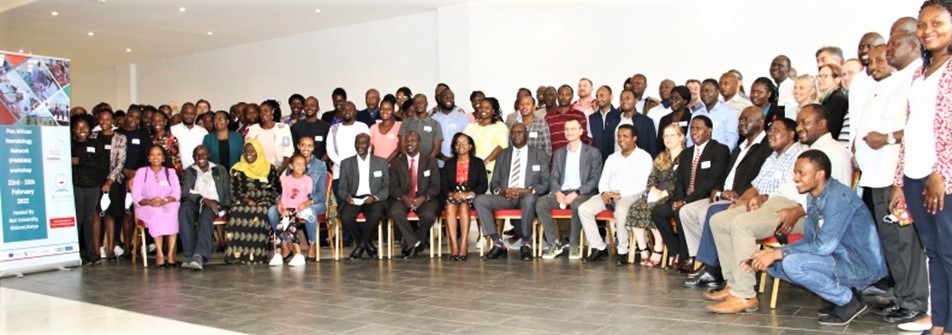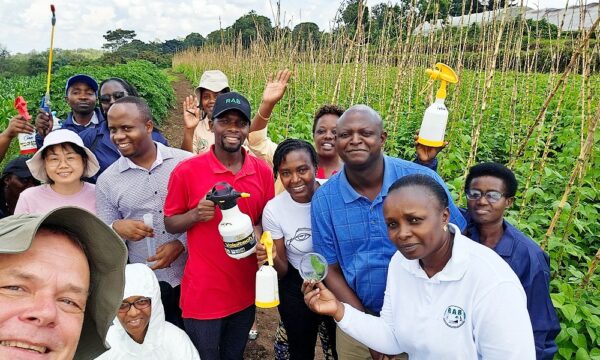
CABI has contributed its expertise in the field of nematology at the first Pan-African Nematology Network (PANEMA) workshop held at the EKA Hotel in Eldoret, Kenya.
Hosted by Moi University and organized by a consortium of organizations from academia and research, CABI’s Peter Karanja, Henry Mibei and Fernadis Makale represented the CABI Regional Centre for Africa at the event which was attended – in person and online – by 109 nematology experts and students from 10 countries.
The three-day workshop was aimed at creating awareness of the importance of nematodes in agriculture, increasing interaction between nematology teachers and students as well as research and information sharing and training with stakeholders in nematology.
Significant damage and yield loss
Nematodes or roundworms cause significant damage and yield loss to a wide variety of crops often together with other pathogens. Unfortunately, nematodes are often overlooked or misdiagnosed, resulting in the unnecessary use of less environmentally friendly and safe to use agro-chemicals. Alternatively, Entomopathogenic nematodes (EPNs) can be used as biocontrol agents against insect pests and/or as bio-control agents for environmental health and biodiversity.
CABI made presentations to introduce plant parasitic nematodes, the symptoms of and management of nematodes. The CABI delegation also showcased nematode training materials. CABI also highlighted the digital tools and knowledge platforms for use in nematode research and information which may be used by agricultural extensionists particularly by plant doctors who operate under the global CABI-led PlantwisePlus programme.
Free-access decision support tool
CABI also showcased its innovative free-access decision support tool that provides users with up-to-date information on nationally registered and available biological control and biopesticide products for managing nematodes and other pests in crops. The CABI BioProtection Portal is available in 28 countries and in local languages, its goal is to help growers and agricultural advisors to identify, source and correctly apply suitable products for the biological control of pests.
The workshop also sought to understand farmer and extension service providers’ opinions and perceptions of the impact of nematodes and their influence on crop production. The importance of networking and consulting between the various experts in nematology was emphasized especially in the area of information sharing, research and training, while acknowledging that knowledge gaps currently exists.
CABI-published book
The second day of the workshop included a presentation of the CABI-published book ‘Integrated Nematode Management: State-of-the-Art and Visions for the Future’ edited by Richard Sikora, University of Bonn, Germany, Johan Desaeger, University of Florida, USA, and Leendert P.G. Molendijk. The book outlines the economic importance of specific plant parasitic nematode problems on the major food and industrial crops. It also presents state-of-the-art management strategies that have been developed to reduce specific nematode impacts, and outlines their limitations.
The first Pan-African Nematology workshop was organised by the Nemedussa Consortium which consists of 16 partners and 36 associated partners in Europe and Sub-Saharan Africa. It is coordinated by Ghent University and is based on a multi-country and multi-stakeholder strategy. Its sponsors including the Erasmus+ programme of the European Union, VLIR-UOS and Belgium’s Development Cooperation.
Additional information
Main photo: CABI staff among the delegates at the first Pan-African Nematology Network (PANEMA) workshop held at the EKA Hotel in Eldoret, Kenya (Credit: CABI).
Related News & Blogs
Tackling a cactus menace with sustainable biological control in Kenya’s Naibunga Community Conservancy
In the heart of Kenya’s Naibunga Community Conservancy, a growing ecological threat is taking root — Opuntia engelmannii. This species of cactus has become a major invasive plant, impacting livestock health, grazing lands, and human wellbeing. The Naib…
24 January 2025




